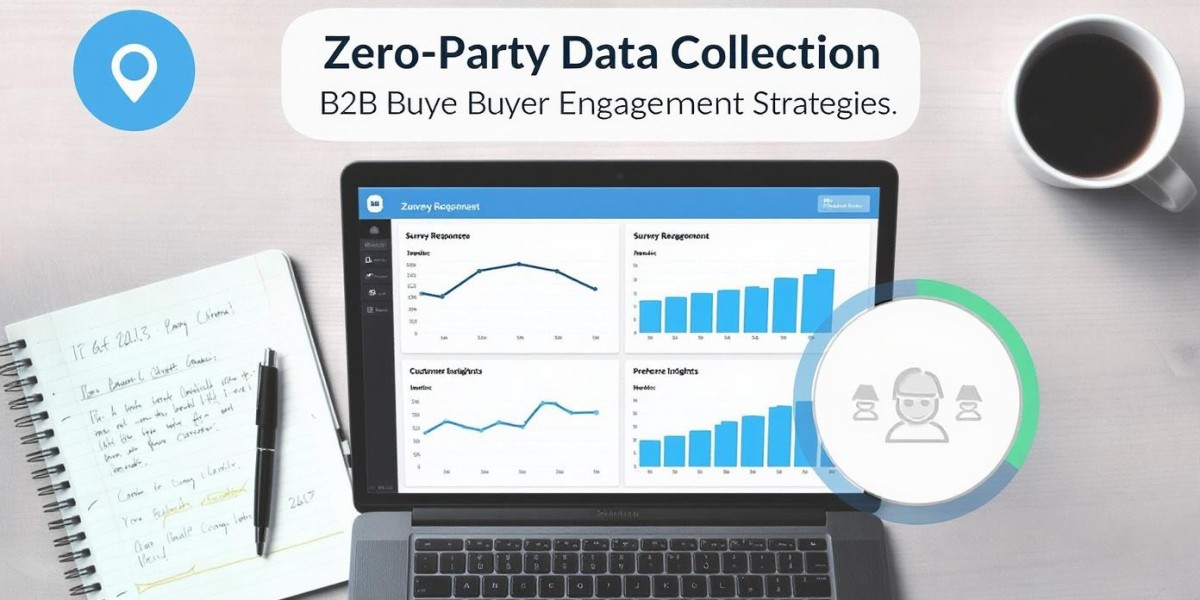Zero-Party Data Strategies for Enhancing B2B Buyer Trust and Engagement in 2025
In 2025, B2B marketers are increasingly focusing on Zero-Party Data to build trust and improve engagement. Unlike inferred or third-party data, zero-party data is information that buyers voluntarily provide, including preferences, intentions, and feedback. By leveraging this type of data, marketers can deliver personalized, relevant experiences that enhance Zero-Party Data adoption and strengthen relationships with high-value prospects.
Zero-party data offers marketers a transparent and privacy-compliant method to understand customer needs, making it an essential tool for the modern B2B marketing strategy.
The Importance of Voluntary Data Collection
Voluntary data collection ensures that marketers are working with accurate, consented information. Customers willingly provide zero-party data because they trust the organization and understand how their information will be used.
This trust creates a foundation for long-term relationships, reducing the risk of inaccurate targeting and enhancing the effectiveness of Zero-Party Data in shaping marketing campaigns.
Enhancing Personalization and Relevance
Personalized experiences drive engagement, and zero-party data is the key to achieving them. By understanding buyer preferences, marketers can craft emails, content, and account-based campaigns tailored to specific needs.
Using insights from zero-party data allows marketers to provide relevant recommendations and solutions, improving engagement metrics and demonstrating the value of Zero-Party Data in B2B marketing strategies.
Interactive Tools for Collecting Zero-Party Data
Interactive content such as surveys, quizzes, polls, and preference centers encourages buyers to share insights willingly. These tools engage prospects while gathering actionable data directly from the source.
Incorporating interactive elements into marketing campaigns not only collects accurate data but also builds a positive brand experience. Interactive strategies enhance Zero-Party Data collection and increase engagement across campaigns.
Integrating Zero-Party Data into Marketing Automation
B2B marketers can integrate zero-party data into marketing automation platforms to deliver personalized content at scale. Automated workflows triggered by buyer preferences or interactions ensure that prospects receive relevant messaging.
This integration helps streamline campaigns, improve response rates, and reinforce Zero-Party Data’s role in driving more effective marketing automation strategies.
Improving Lead Scoring and Nurturing
Zero-party data provides explicit insights into buyer intent, making lead scoring and nurturing more precise. Marketers can prioritize prospects based on shared preferences and engagement levels, ensuring the sales team focuses on high-value opportunities.
By leveraging zero-party insights, organizations can optimize nurturing campaigns, increase conversion rates, and maximize the impact of Zero-Party Data across the sales funnel.
Aligning Marketing and Sales Efforts
Sharing zero-party data across marketing and sales teams improves alignment and enables more effective account-based strategies. Sales teams gain actionable insights into buyer preferences, enabling personalized outreach and solutions.
This alignment ensures consistent messaging across touchpoints, demonstrating the practical value of Zero-Party Data in creating cohesive buyer journeys.
Ensuring Compliance and Data Security
Zero-party data inherently supports privacy compliance because it is willingly shared by buyers. Organizations can clearly communicate consent, use preferences, and storage policies, ensuring adherence to GDPR, CCPA, and other regulations.
Proper governance of zero-party data reduces compliance risks and enhances trust, showing buyers that their information is handled responsibly while increasing Zero-Party Data’s credibility as a marketing asset.
Measuring Effectiveness of Campaigns
The effectiveness of zero-party data strategies can be evaluated through engagement metrics, conversion rates, and customer satisfaction scores. Marketers can analyze how personalized campaigns influence buyer behavior and optimize messaging accordingly.
Continuous measurement allows for refinement of strategies, ensuring Zero-Party Data consistently drives higher engagement and ROI in B2B marketing initiatives.
Preparing for Future B2B Marketing Trends
As data privacy and trust become more central to buyer expectations, zero-party data will continue to grow in importance. B2B marketers who prioritize voluntary data collection and transparent usage will benefit from higher engagement, better personalization, and improved compliance.
Effectively leveraging Zero-Party Data enables marketers to stay ahead of evolving trends, optimize campaigns, and foster meaningful, long-lasting relationships with buyers in 2025 and beyond.
About Us
Acceligize is a global leader in B2B demand generation, helping businesses connect with their most relevant audiences through innovative, data-driven strategies. By combining advanced technologies such as AI, intent data, and content syndication, Acceligize empowers brands to build meaningful relationships and accelerate growth.
With a focus on performance marketing and personalized engagement, the company enables organizations to thrive in today’s competitive digital ecosystem.






